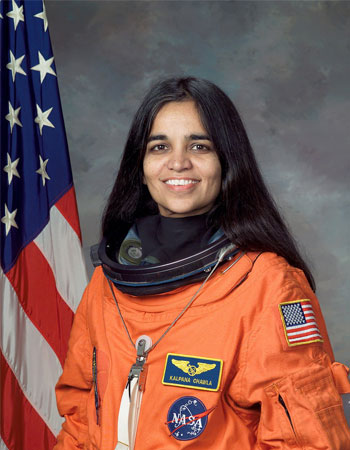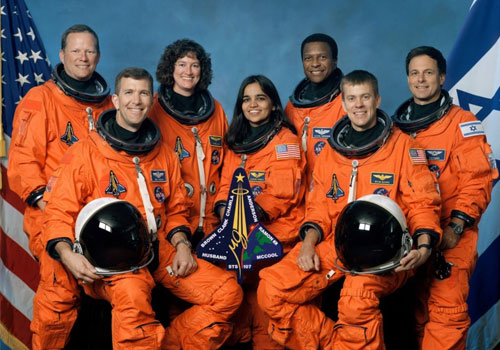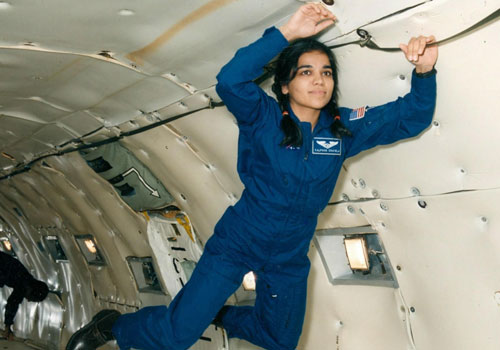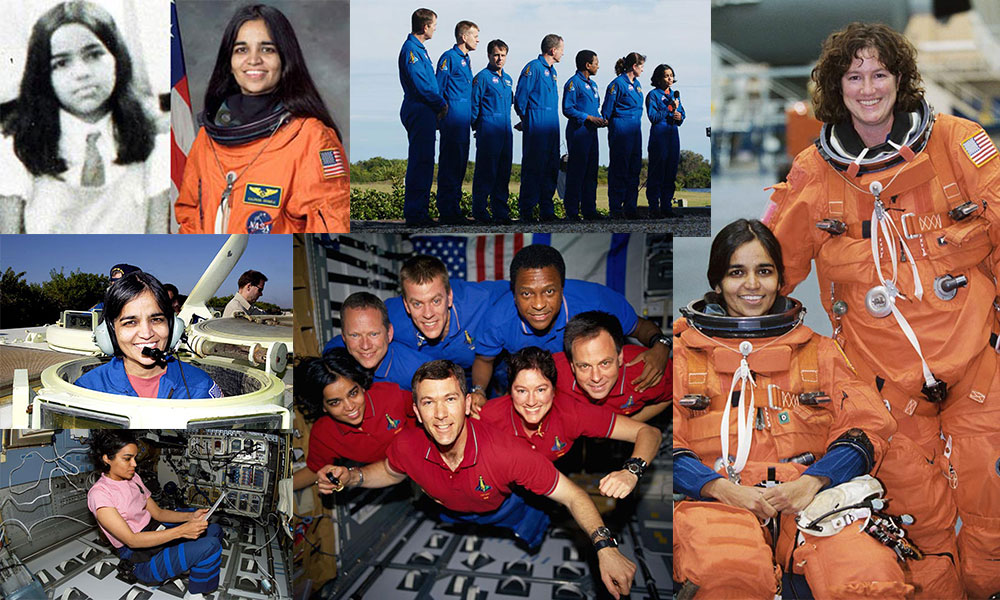Kalpana Chawla (कल्पना चावला)

Kalpana Chawla was an American astronaut living in the Karnal district of Haryana, India, whose life span was 17 March 1962–1 February 2003. She completed her education in aeronautical engineering at Punjab Engineering College, India. In 1982, she was sent to America to complete her Master of Science degree in Aerospace Engineering from the University of Texas at Arlington in 1984. She went on to earn a second master's degree in 1986 and a PhD in aerospace engineering in 1988 from the University of Colorado at Boulder. In 1988, she started working with NASA's Ames Research Center. She used to do research there on some concepts of computational fluid dynamics. Chawla got commercial pilot certificates for single and multi-engine aircraft, seaplanes, and gliders, in addition to a certificated flight instructor rating for aeroplanes and gliders.


She joined the NASA Corps after applying in 1995 and made her first flight in 1997. Kalpana Chawla made 252 orbits of 10.4 or 6.5 million miles around the earth in 376 hours on her first journey. After the completion of STS-87 activities, she was assigned the technical post of astronaut office aboard the space station. In 2001, Kalpana was selected for her second journey, STS-107. With all the advanced technology, the crew conducted about 80 experiments for the health and safety of the astronauts. As during the launching of STS-107, Columbia's 28th mission, a piece of insulating foam came off from the Space Shuttle external tank and impacted the port wing of the orbiter. Chawla perished, along with the other six crew members, in the Space Shuttle Columbia tragedy on February 1, 2003, when Columbia exploded over Texas during re-entry into the Earth's atmosphere.

Kalpana Chawla's death inspired the creation of Lunar Crater Chawla. NASA has given the name "Kalpana" to one of their supercomputers. The Government of Karnataka established the Kalpana Chawla Award in 2004 to recognise young female scientists. The Government of Haryana established the Kalpana Chawla Planetarium in Jyotisar, Kurukshetra. Mega Icons (2018–2020), an Indian documentary television series on National Geographic with approximately outstanding Indian personalities, devoted an episode to Chawla's achievements.
Leave Your Suggestion